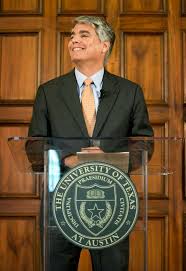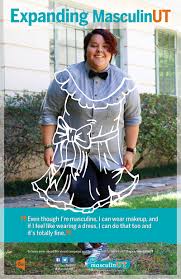“Diversifying” the University of Texas

An abridged version of this post appeared in City Journal on May 14 as “Hard Left at UT.”
The City Journal version was featured in the Wall Street Journal‘s “Best of the Web.” And it was quoted in a piece by Charlotte Allen in Minding the Campus.
The topic of out-of-control higher education tends to invoke images of fringe campuses such as the radicalized Evergreen State College in Washington, the perennially-progressive University of California system, and of course the ostentatiously “woke” institutions representing the Ivy League. The sad reality is that political correctness and identity politics are corrupting colleges and universities all over the country, public and private. Rot has not only set in, it is well underway across the nation, including states usually regarded as Republican bastions, such as Texas. It may surprise many readers, but even at the University of Texas, in the home state of conservative stalwart Sen. Ted Cruz, where the GOP controls both house of the legislature and holds all statewide elected offices, leftist zealots are in control and doing their best to mimic—or perhaps outstrip–UC Berkeley.

UT was established in 1883 with a charter to serve as “a university of the first class” in the state of Texas. Under the leadership of UT President Greg Fenves, however, UT is being molded into a burnt orange knock-off of UC Berkeley—a showcase for the latest left-wing fads in academia. Fenves, a UC Berkeley alumnus who also previously taught there, has overseen the removal of “offensive” historical statuary (including one commemorating a former Texas governor, James Stephen Hogg), an expensive legal battle to defend UT’s use of racial preferences in admissions, the expansion of a highly-paid diversity bureaucracy (with a staff approaching 100), lawsuits challenging the denial of due process in UT’s handling of sexual misconduct claims, the implementation of campus speech codes and the creation of “bias response teams,” and, in 2016, UT’s first international black studies conference, which featured the notorious Communist activist Angela Davis (a former member of the FBI’s most wanted list) as a keynote speaker.

And these are just the highlights of Fenves’s agenda.
Despite a lopsidedly Republican electorate in Texas, many UT alumni place greater importance on the success of the school’s sports teams than they do on academic politics, and therefore pay scant attention to Fenves’s transformation of their alma mater into a social justice academy. Despite his aggressive activist agenda, the only significant pushback Fenves has faced thus far was over the university’s “MasculinUT” program, a widely-ridiculed campaign designed to combat “toxic masculinity” on campus. The risible program, a caricature of political correctness, suggested that men suffer when they are told to “act like a man” or encouraged to be the “breadwinner.” The $330,000/year Dean of Students promoted by Fenves, Soncia Reagins-Lilly, was forced to put the program on hold when national media and radio talk show hosts mocked it mercilessly.

The MasculinUT miscue aside, Fenves has been remarkably successful in his “diversification” of UT. In welcoming the black studies conference, Fenves bragged about UT’s recent founding of the African and African Diaspora Studies Department (AADS), and lauded its work for social justice and activism on behalf of “the civil rights of under-represented people.” Fenves is such a champion of identity politics that, under his leadership, the founding department head of the AADS, Ted Gordon, was recently promoted to become UT’s vice provost of diversity, where his “primary responsibility will be to promote diversity among the faculty at The University of Texas at Austin. He will work … to enhance and grow our diversity-related faculty recruitment and retention efforts.”
Gordon, whose academic interests include critical race theory, is a divisive figure best known for arguing that UT’s iconic fight song, “The Eyes of Texas,” has racist origins and is offensive to African-American students. Gordon has also referred to the Confederate States of America—of which Texas was a part—as “traitors.” As a board member of the Austin Independent School District, Gordon has called meritocratic admissions “colorblind racism” and suggested that racial disparities are evidence of “institutionalized racism.” These are the sentiments of an ideological extremist, and Fenves’s selection of him to lead the “diversity” initiative crusade is truly staggering.
To punctuate the seriousness of Gordon’s diversity mission, UT’s provost, Maurie McInnis, hand-picked by Fenves in 2016 and earning a whopping $450,000 a year, recently announced UT’s faculty diversity initiatives in an internal email to UT faculty. The email warrants quoting at length:
Before the semester comes to an end, I want to provide an update regarding the various efforts underway to address faculty diversity and inclusion across campus. As I’ve mentioned in the past, this is incredibly important to me and imperative to our future as the public flagship research university for the state of Texas. Much public attention is focused on the diversity of our student population, but greater diversity among faculty — as well as the campus community overall — benefits our students and also strengthens our excellence in research, scholarship, and creativity. Breakthroughs are generated by diverse perspectives, and we accomplish this by tapping into the full breadth and depth of talent and experiences of our faculty.
I would first like to acknowledge the efforts underway across campus. Diversity and Inclusion Committees in all the colleges and schools have been working in concert with deans, Vice Provost for Diversity Ted Gordon, the Council for Racial and Ethnic Equity and Diversity, and the University Faculty Gender Equity Committee.
Faculty Search Committee Training
UT Austin launched workshops modeled after national best practices to assist search committees in diversifying applicant pools, build awareness of biases, and provide guidance to mitigate their effects. This training is intended to provide information and support to effectively manage searches and ensure fair and thorough reviews of applicants. The first training workshop was offered in early May, and it will continue to be offered to search committee chairs and members.University Diversity and Inclusion Action Plan
In order to keep the campus community better informed about diversity initiatives across campus, a new website has been developed that includes progress updates regarding the University Diversity and Inclusion Action Plan (UDIAP). Numerous efforts are underway to address faculty diversity specifically. I encourage you to learn more about their progress here and provide feedback. (Emphasis added.)
Translating McInnis’s email from academic jargon to plain English: hiring quotas are coming. Just as the goal of racial preferences in admissions is to achieve the “right” demographic mix in the student body (without the dreaded “under-representation” of certain groups), the creation of “diversity goals” for the faculty ineluctably leads to counting by race, ethnicity, and sex. In employment, the terms “action plans” and “progress updates” serve as euphemisms for numerical quotas. Hiring committees will have to justify job offers to “non-diverse” candidates. “Diversity” will produce a multi-hued echo chamber lacking any semblance of political balance. If the ultra-liberal orientation of the existing AADS faculty and the rest of the UT “diversity” apparatchiks is any indication, UT will soon become just another purveyor of blatant leftist indoctrination.
And for what purpose? McInnis’s email contains a howler when she proclaims that academic breakthroughs are generated by “diverse perspectives.” This is the pernicious myth of identity politics. Academic progress—curing diseases, scientific and engineering breakthroughs, the invention of new technologies, and all other advances—is the result of excellence, not “diversity.” Marie Curie did not discover radioactivity because she was a woman, but because she was a first-rate scientist. To the extent that quota-driven university administrators undermine the meritocracy that produces excellence, in the interest of gender or racial politics, they will invariably impede breakthroughs.
The nearly-universal impulse of university administrators to impose leftist orthodoxy—a continuation of the long march through the institutions—is, unfortunately, unremarkable. What is baffling, however, is that Fenves’s radical mission to remake UT in UC Berkeley’s image has gone totally unchallenged by Texas’s Republican governor, Greg Abbott, his appointees to the powerful Board of Regents that supposedly oversees UT, and the GOP-controlled legislature that funds Fenves’s ideological sandbox.

Beginning with the Alamo, Texans have historically stood up to defend their beliefs and institutions. Are the nearly half-million UT alumni content to allow Fenves to (using a term Gov. Abbott coined in another context) “California-ize” their beloved Forty Acres? If not, they’d better wake up and demand that their elected officials stop the insidious transformation of UT before it’s too late. The flagship university of the Lone Star State is rapidly being subverted from within.


































